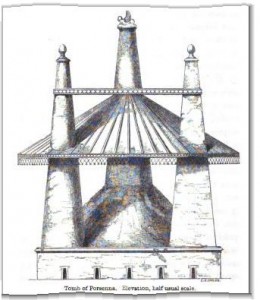Horace (Epistulae 1.15):
Ä€d mărÄ• | cÅ«m vÄ“|nÄ«, gÄ•nÄ•|rÅs(um) Ä“t | lÄ“nÄ• rÄ•|quÄ«rÅ,
quÅd cÅ«|rÄs ăbÄg|Ät, quÅd | cÅ«m spÄ“ | dÄ«vÄtÄ• | mÄnÄ“t
Ä«n vÄ“|nÄs ănÄ|mÅ«mquÄ• mÄ•|Å«m, quÅd | vÄ“rbă mÄ|nÄ«strÄ“t,
quÅd mÄ“ | LÅ«cÄ|næ jÅvÄ•|nÄ“m cÅm|mÄ“ndÄ•t ă|mÄ«cæ.
When I go to the sea, I need a smooth [wine] with a good lineage, to put my cares to flight, to flow with rich hope in my veins and in my heart, to supply me with conversation, to make me seem young to my Lucanian lady-friend.
When I was translating this bit, I was keeping an eye on the stress accent, which was so prominent in the last lines of Plautus I did. Outside of the usual ‘shave-and-a-haircut’ line ending, the stress corresponds to the feet in what happens to be exactly the same way, landing on the first part of the final element of the foot:
Ad máre | cum vé|ni, gène|rosum ét | léne re|quÃro,
quod cú|ras ábi|gat, quód | cum spé | dÃvite | mánet
in vé|nas à ni|mumque me|um, quód | vérba mi|nÃstret,
quod mé | Lucá|næ júve|nem com|méndet a|mÃcæ.
If this were a rule, the only exceptions would be that additional stresses on animumque (on the ultima) and commendet (on the antepenult) would be expected, but which I don’t think exist in the usual pronunciation. The stress on et replacing the main stress of generosum might also be something that needs explaining. (All three of these feet, like the final feet of the line, work as homodynes: -rósum et, -múmque me-, -nèm com-, though naming them doesn’t really give an indication why they occur, if there is any reason.)
This perhaps means little, but I’ll keep playing with it.
[For abigo.]
Tagged 1st century BC, abigo, dactylic hexameter, Horace, scansion, stress accent, translation
